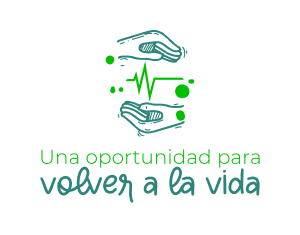Medical Directory
More than 500 full time specialists, who guarantee you appropriate care
View DirectoryO
P
U
P
International Medical Care
Click on the overview to see more information about our office
More than 500 full time specialists, who guarantee you appropriate care
View DirectoryClick on the overview to see more information about our office
Available at locations :

Heart transplants performed since 1996 at la Fundación valle del Lili
Kidney transplants performed since 1995 at la Fundación valle del Lili
Bone marrow transplants performed since 1998 at la Fundación valle del Lili
Liver transplants performed since 1996 at la Fundación valle del Lili
Lung transplants performed since 2015 at la Fundación valle del Lili

Kidney transplant in children and adults with living and cadaveric donors

Liver transplant in adults with cadaveric donor

Liver transplantn in children with living and cadaveric donors

Heart transplant

Lung transplant

Pancreas transplant

Bowel transplant

Combined transplant (multivisceral)
La Fundación Valle del Lili is a leading and efficient Institution in performing organ and tissue transplants and recovery . We stand out in Colombia and Latin America for carrying out successful procedures.
We are an Institution with a vocation for transplantation . Our specialties, outpatient and hospital services are aligned to give 24/7 support to all our donors and recipients.
La Fundación Valle del Lili is the only Institution in Colombia that performs multivisceral transplantation: pancreas, liver and intestine, pancreas-kidney, kidney-liver, among others.
In pediatrics, at the regional level we are the entity that performs the most transplants, we have extensive experience and excellent results in performing liver and kidney transplants in childrens.
We offer a model of care with quality and humanization through the Donation and Transplantation Functional Unit that is in charge of integrating and monitoring the patient's process in all stages and types of transplantation.
As a Donor Hospital we actively participate in obtaining tissues for transplantation purposes, including: ocular tissue, vascular tissues, skin and musculoskeletal.
Since 2010, in conjunction with the Icesi University, we have a specialization program in Abdominal Organ Transplant Surgery , from which we have trained transplant surgeons for Colombia and neighboring countries.
We train human resources at a national and international level, generating cooperation links and international agreements.
A transplant is the only medical treatment that consists of replacing a chronically diseased organ or tissue with another that is working properly.
It is the decision to voluntarily, generously and altruistically help others in need. Organ and tissue transplants to sick people can improve their quality of life or allow them a second chance at life.
Tissues: corneas, blood, bone marrow, blood vessels, eyeball, skin, bones, heart valves, tendons and cartilage.
Corneas and ocular tissue: helps people suffering from serious diseases. Transplantation allows them to restore vision or prevent loss of the eyeball.
Bones and tendons: is the most commonly used tissue. This transplant prevents amputation in children or adults with cancer or who have suffered bone trauma.
In Colombia, according to Law 1805 of 2016, everyone can be an organ and tissue donor regardless of age, race, sex or religious belief. In this way, people are allowed to decide in life that, at their death, their organs and tissues serve to save or improve the lives of others. Otherwise, your relatives will be able to make that decision, when the time comes.
In the case of bone marrow transplantation, in most cases the donors are siblings, father, mother or other close relatives, as long as they are compatible with the recipient.
It is a personal decision that is made in life. You must express your desire to be a donor to your closest family and friends. They will respect and enforce your will. You can also register on the website of the National Institute of Health: www.ins.gov.co
When brain death is declared, organs and tissues can be donated or if there is a definitive stop to the heart, only tissues can be donated.
In life you can also be an organ or tissue donor to a sick relative, donating a kidney, a portion of the liver, blood or bone marrow, according to health needs.
Patients in a coma or in a vegetative state retain vital functions such as breathing, yawning, coughing or opening their eyes. However, they probably cannot move or relate to their surroundings. It is important to clarify that a person in these conditions can evolve to BRAIN DEATH.
It is when the brain suffers irreversible damage generating the definitive loss of vital functions. Blood and oxygen no longer reach the brain and organs can function artificially for a few hours. When a person is diagnosed with brain death, it means that they are clinically and legally deceased.
The allocation criteria are compatibility, clinical conditions of the recipient, and time on the waiting list. There is no distinction of age, sex, socioeconomic status or religion.
In Colombia, all people can be donors, from a child to an older adult, as long as the donation is made under the criteria established in current regulations and all the conditions of the donor are evaluated to determine which organs can actually be donated.
Immediately inform the medical personnel in charge of the health institution, so that in turn they can inform the Colombian Donation and Transplant Network or report the death and the desire to be a donor through the Free phone Line of the National Institute of Health: 01 8000 113 400.
There are two kinds of donors: living donors who can share one of your kidneys, part of your liver and bone marrow, and deceased donors who can donate organs and tissues.
No, to perform transplants you need a clinic with a large physical and technological infrastructure, and it is the Ministry of Health that empowers an entity to perform these procedures. It is impossible to do it in a place that does not have the infrastructure, technology and specialized human personnel. In addition, all equipment used for transplantation is registered and monitored. The specialists must be accredited by official institutions that monitor them in databases and define the places and institutions where a surgeon can perform transplants. Colombia has very strict legislation on the issue of donation and transplantation, since organ trafficking is considered a criminal offense, according to Law 919 of 2004
These are laboratory tests through which the degree of genetic compatibility between the organ donor and the recipients to whom it will be transplanted is determined. When a donor is presented, studies of leukocyte antigens in the blood are carried out, which are compared with those of patients on the waiting list for that organ, in this way transparency is guaranteed, since only the recipient with the highest compatibility can receive the transplant.
In bone marrow transplants, blood samples from the patient's relatives are evaluated in genetics laboratories and, depending on the result, the most appropriate donor is chosen.
The waiting list for transplants is a large registry of patients grouped according to the organ or tissue to be transplanted. This list is audited and regulated by the National Institute of Health (INS), the entity that manages the platform called RED DATA, in which the clinical data of the recipients, the clinical indication for transplantation, the evaluation of each case by a interdisciplinary group of specialists assigned to a transplant program in the different regions of the country. The monitoring of each patient is carried out through the DATA NETWORK, which operates in real time 24 hours a day, 365 days a year, recording all the activity of the donation-transplant process. This system has strict safety regulations.
Currently in Colombia there are approximately 35,000 patients on dialysis secondary to end-stage kidney disease. We are an Institution with more than 25 years of experience of having a kidney transplant program, positioning ourselves as a Hospital with a high national and international trajectory. Thanks to having a highly specialized surgical medical team in nephrology and transplant surgery to manage complex patients, for example patients with chronic kidney disease with complex medical situations (hypersensitive patients with high immunological risk to be able to reach a kidney transplant) .
Today we have surgical techniques that are at the forefront of international standards such as nephrectomy by minimally invasive surgery with excellent results in the short, medium and long term.
We have a multidisciplinary team to develop the combined abdominal solid organ transplantation program such as: liver-pancreas-intestine, liver-pancreas, among others.
Informe semestral de donaciones de órganos en Colombia enero-junio-2021
What is it?
The Donation and Transplant Functional Unit is a care model that assumes the complete cycle of the patient in all its stages and in all types of transplantation: kidney, liver, heart, lung, combined and bone marrow, providing a service with excellence , humanization, security and cost effectiveness.
Purpose of the Functional Unit for Organ Donation and Transplantation
This successful care model helps to resolve medical-administrative barriers that may arise at any stage of the transplant care process (donation, pre-transplant, transplant, and post-transplant). It is also focused on ensuring the care of our patients with an ongoing follow-up and educational program.
We have nurse managers who are in charge of guiding and educating the patient in all their health needs during their transplantation process in our institution, including administrative procedures with insurers through internal authorization management routes and with the support of the psycho group. who assesses and monitors the patients of the Fundación Valle del Lili transplant program.
Contact Functional Unit for Donation and Transplantation:
602 3319090 Ext. 7560
Hours of operation: Monday to Friday from 7am to 5pm. Tower 6 Floor 5
What is it?
It is a strategy that was born in 2014, which aims to promote social awareness of the benefits of organ and tissue donation, continuously educating the intra and extra hospital community.
The objective is to provide tools to health personnel and the community that allow the detection and management of potential organ and tissue donors. Generating a culture in favor of organ and tissue donation, providing adequate information and clarifying doubts on the subject, has a high impact on the number of alerts from potential donors, this being a significant percentage of donors, which improves donation rates. .
If you wish to participate in the Donor Hospital strategy, allowing us to educate and sensitize your hospital or company, please write to us at hospital.donante@fvl.org.co, mercadeo@fvl.org.co.
Liver transplantation is a treatment option for patients with chronic liver disease. We are the only institution in the South West of Colombia that performs pediatric liver transplantation with a living donor, this being one of our greatest strengths.
In addition, we have a multidisciplinary team that covers different specialties that allows us to provide other highly complex medical and surgical treatment options in the diagnosis and management related to liver disease of the bile ducts and pancreas. This through the hepatobiliopancreatic surgery service.
What is a living donor organ transplant?
It consists of removing an organ or part of a healthy organ from a living person through surgery to implant it in another person with a chronic disease who needs it to continue living.
What are the organs that can be donated?
Kidney (Kidney transplant).
Liver (Liver transplant).
Can I live with only one kidney?
Yes, a single kidney is capable of fulfilling the functions necessary to live normally.
What happens when I am a liver donor?
When you are a living liver donor, you donate a part of this organ. Your liver will grow back to its previous size and its function will be normal.
Why is a living donor organ transplant performed?
Because it can represent a faster life opportunity for people who need an organ. Receiving the organ from a deceased donor does not have a specific time, since it must be identified that it is compatible with the person who needs it.
For more information, contact the Functional Unit for Donation and Transplantation of Organs and Tissues: 3319090 Ext. 7518 – 7619 – 7258 – 7554.
Do you live outside of Colombia?, Are you interested in receiving information about Transplants at La Fundacin Valle del Lili? contact us at the following link: